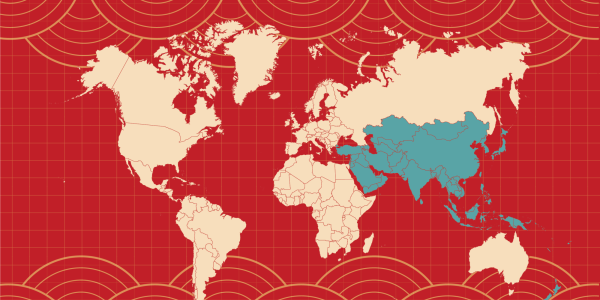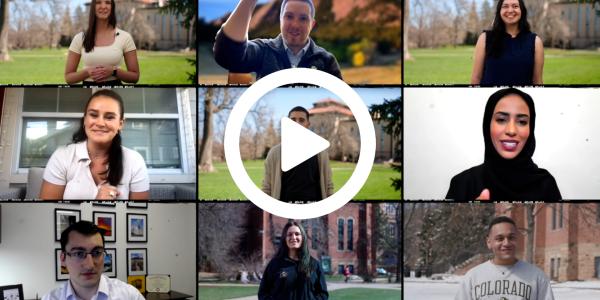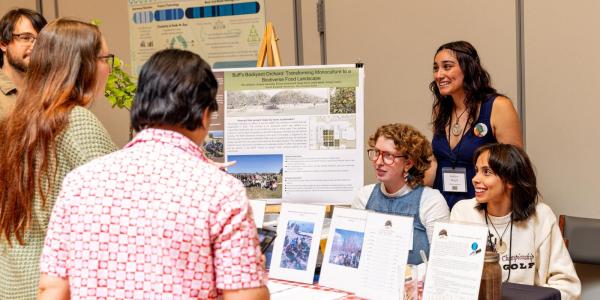
The University of Colorado’s Division of Continuing Education has come a long way from its humble beginnings in young Macky Auditorium where burlap bags separated staff space in 1912 and the division offered 28 correspondence courses in 11 fields. Today, Continuing Education partners with CU’s academic departments to offer flexible credit courses representing 35 departments and multiple programs granting nontraditional students and community members access to campus.
In 1911, public school teachers first recommended establishment of the division primarily to offer Saturday morning courses for teachers. Subcommittees of CU faculty advised that the division offer courses by mail correspondence and community lectures. With support from the Board of Regents and CU president James Baker, the Division of Extension, as it was once called, was established in 1912.
The university extension movement aimed to broaden educational opportunities to individuals and communities outside of the university. Continuing Education’s first director Loran D. Osborn founded the Division of Extension on the university’s “desire to be of the widest possible service in the state,” he said in 1912. “Its expert resources are too valuable an asset to the state to be thus limited. They should be at the disposal of individuals who cannot come within the college walls, and communities, which are seeking information and guidance in solution of the complex problems of modern life.”
The profile of modern life changed over the past century, but Continuing Education’s early mission of extending university resources remained true. Continuing Education adapted to evolving educational needs by offering teachers certification training in the 1930s, WWII veterans access to course work and job placement assistance in the 1940s, women a mini college to prepare them for the workforce and four-year degrees in the 1970s, and professionals access to engineering and technology courses in the 1980s. In the 1990s, Continuing Education assumed responsibility for the campus’ Summer Session program. The division established CU Complete in 2009 to assist former degree students complete their bachelor’s degree. And in the past few years, the division has expanded its efforts in helping faculty extend their expertise through outreach and engagement activities around the state.
“After all these years, we remain committed to helping our students access the vast resources of the university. It’s such a privilege to work with a wide array of faculty, students, and staff in developing these programs. Lifelong learning is a life skill that helps us cope with change, manage careers, and enrich daily life,” said Anne Heinz, dean of Continuing Education and associate vice chancellor for Summer Session, Outreach and Engagement.
Continuing Education strives to fulfill the early recommendations from 1911. Correspondence coursework has evolved into a robust online program, evening courses extend operating hours and access to CU-Boulder credit classes, international students hone their language skills in English as a second language classes, engineers work remotely on master’s degrees, faculty travel to rural Colorado and engage communities in conversations about their areas of scholarship and creative work, and area community members are invited to learn from prominent faculty through its various community programs.
More than 700 community members are expected to celebrate Continuing Education’s 100th anniversary by attending CU on the Weekend, a sold-out series of Saturday mini-courses aimed at engaging the public in CU-Boulder research, teaching, and creative work. As part of its anniversary celebration, Continuing Education now offers these weekend courses free of charge beginning Sept. 22. The fall courses range from exploring the topics of Los Alamos in the Cold War to Tibet, the CIA and the Secret History of Camp Hale. Reservations filled up quickly, but the spring series will be announced in November.
“CU on the Weekend and our community programs allow area residents to sample a wide range of interesting topics,” Heinz said. “We are delighted to bring members of the community to campus to learn from faculty who are gifted teachers who are passionate about their subject.”
Generations of Lifelong Learners
Learn about Continuing Education’s contribution to Congressman Jared Polis’ passion for lifelong learning, Scientist Robert Sievers’ sculpture skills, Associate Professor Hillary Potter’s career in criminology research, and more at conted.colorado.edu/100years



